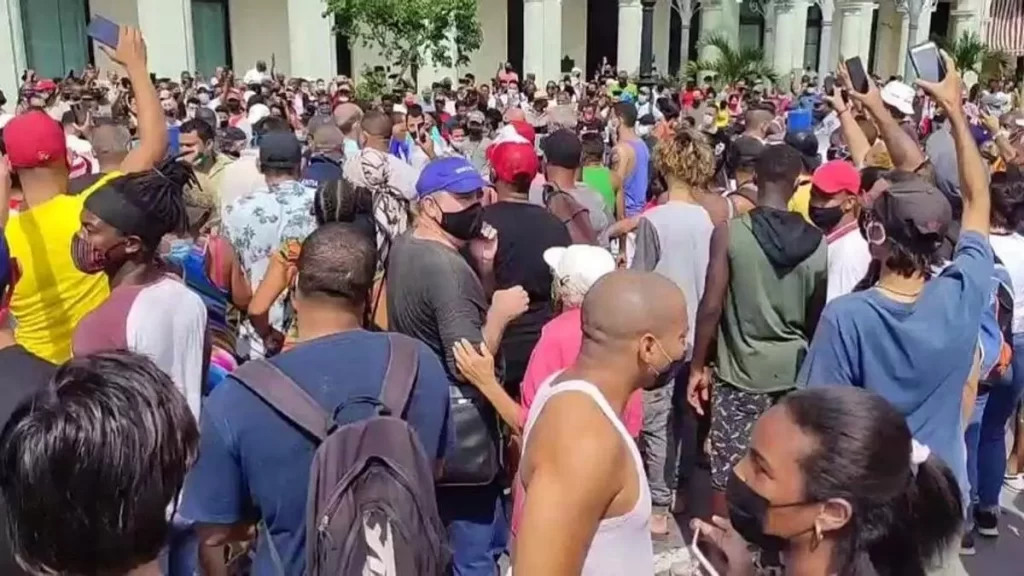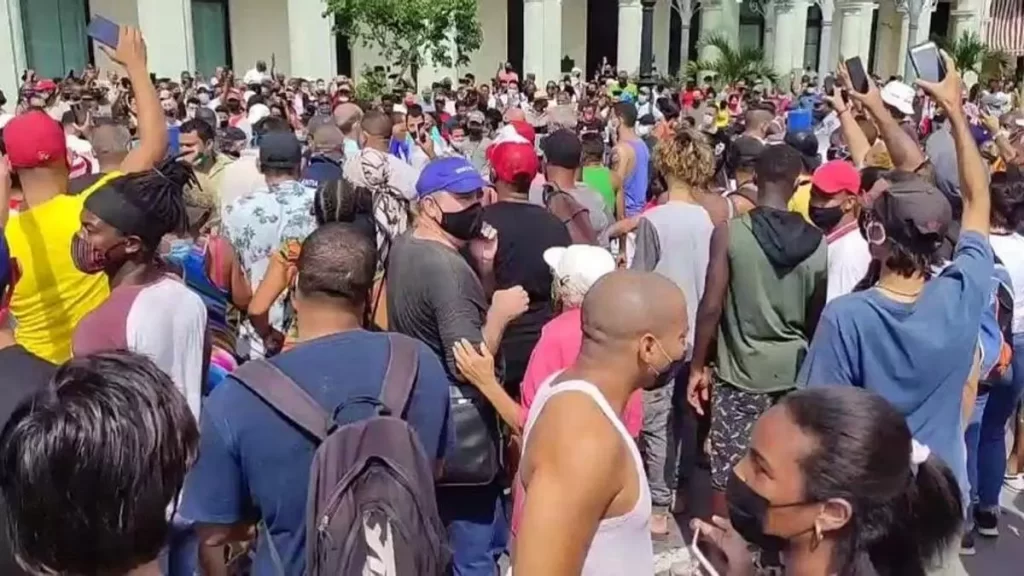For the Regime, “nothing happened” that day, not even in Beijing’s Tiananmen Square in 1989, said Francis Matéo, sarcastically

14ymedio, Xavier Carbonell, Salamanca, 10 July 2024 — Three years after the massive protests of 11 July 2021 (’11J’), many Cuban readers wait to read two books: a historical study that defines the caliber and meaning of the demonstrations and an anthology of the chronicles, reports and photographs that – regardless of ideological position – were published during those days. Now, on the eve of its third anniversary, bookstores have received valuable personal testimonies and many studies about the event that changed the citizen landscape of the Island.
One is the Spanish edition of Cuba… Homeland and Life! (Ecúmene Ediciones), by the French reporter Francis Matéo, whom 14ymedio interviewed about his “chronicle of a revolt.” A year after that conversation, Mateó explains to this newspaper the need to “not forget what happened” on 11J.
“It has been weeks, months and years (we should add: days and hours) of suffering and agony for the victims of the repression that followed these demonstrations. Thousands of families were mistreated, violated and destroyed by the harassment inflicted on their loved ones. Innocent victims were imprisoned or condemned to exile, if not to the despair that continues to worsen on the Island,” he says.
“Innocent victims were imprisoned or condemned to exile, if not to the despair that continues to worsen on the Island”
The situation, he says, “has only become worse.” Many of those who were arrested in those days “continue to languish in prison” and “almost 600,000 Cubans have emigrated since the summer of 2021.”
In his book, the journalist undertakes a study of the root causes of the crisis that led to the eruption, including the erosion of the methods of control of the Cuban regime, the indebtedness of the leadership and the collapse of the economy.
According to the press release that accompanies the launch, the book recounts a series of events for which citizens “paid dearly. For the first time in more than sixty years, the Castro dictatorship is openly condemned in the streets of the entire Island, and the fear imposed by the repression of any form of protest yields to the courage of the peaceful but determined demonstrators,” he summarizes.
Matéo traveled to Cuba after the coronavirus pandemic and collected the testimonies of dozens of demonstrators, including several from the Havana neighborhood of La Güinera, one of the main focuses of the protest and where Diubis Laurencio Tejeda was shot dead at the hands of the police. He also came into contact with journalist Iliana Hernández, who at that time lived in the capital under strict police surveillance.
Matéo’s book represents a critical trend within European journalism that, according to the author himself, seeks to counteract the idyllic vision that many have of the Isl


